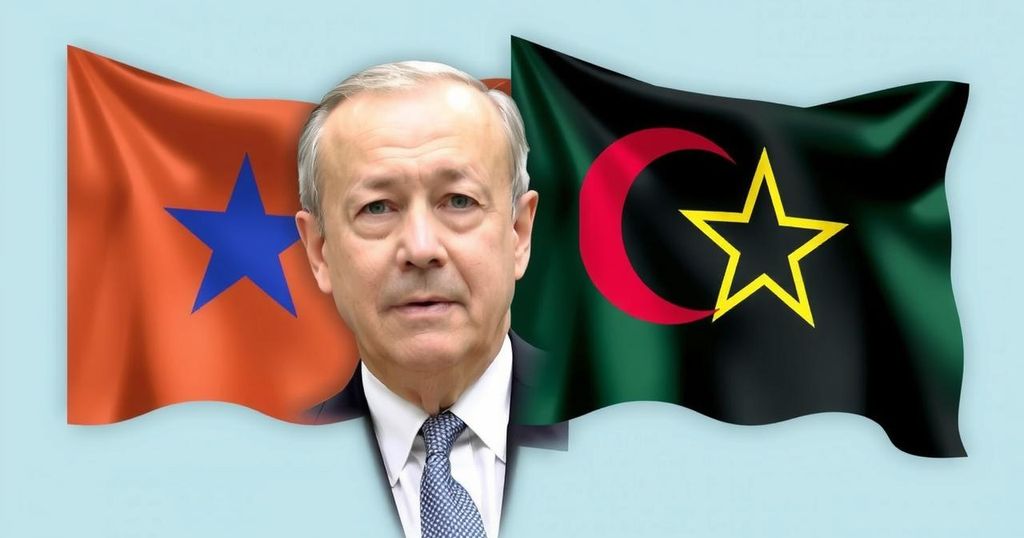Somalia and Ethiopia have reached a joint declaration to resolve tensions regarding Somaliland and Ethiopia’s need for maritime access, announced by Turkish President Erdogan during talks in Ankara. The leaders expressed hopes for peaceful cooperation and future technical discussions to enhance bilateral relations, marking a significant diplomatic breakthrough in the region.
In a significant diplomatic achievement, Turkiye’s President Recep Tayyip Erdogan announced that Somalia and Ethiopia have reached a joint declaration to resolve their tensions regarding the contested Somaliland region and Ethiopia’s quest for maritime access. Following discussions in Ankara, both leaders expressed optimism about this agreement fostering peace and collaboration. The declaration represents a forward-looking commitment prioritizing cooperation over historical disputes, with plans for further technical discussions anticipated by the end of February.
President Erdogan, in a joint press conference, highlighted that the agreement signifies a historic reconciliation between Somali President Hassan Sheikh Mohamud and Ethiopian Prime Minister Abiy Ahmed. He emphasized that this joint declaration not only aims to strengthen bilateral ties but also ensures that Ethiopia acquires sustainable sea access under Somali sovereignty. This development follows heightened tensions after a controversial agreement between Ethiopia and Somaliland over maritime rights, which Somalia deemed a breach of its sovereignty.
The international community has been on alert due to the potential for renewed conflict in the Horn of Africa, particularly involving Ethiopia, Somalia, Eritrea, and their historical rivalries. Somaliland, which declared independence over 30 years ago, is not recognized by the African Union or the United Nations and continues to be viewed as part of Somalia by its central government. Nonetheless, Somaliland has maintained a degree of political stability absent in Somalia, marred by ongoing violence and instability from militant groups such as al-Shabab.
In the pursuit of peace, the two leaders underscored their commitment to addressing lingering misunderstandings. Prime Minister Abiy characterized Ethiopia’s quest for sea access as a peaceful endeavor aimed at fostering cooperation within the region. President Mohamud echoed this sentiment, indicating Somalia’s readiness to collaborate with Ethiopia moving forward.
The Horn of Africa has been a region marked by geopolitical tensions, particularly between Somalia and Ethiopia. The recent years have witnessed escalating disputes, particularly concerning the actions of Ethiopia regarding Somaliland, which unilaterally declared independence in the early 1990s. Despite its self-governance and relative stability, Somaliland has not gained international recognition and remains a contentious point between Somalia and Ethiopia. The desire of Ethiopia—an entirely landlocked nation—to secure maritime access has added complexity to their relations, necessitating mediation and intervention from external actors such as Turkiye.
The agreement between Somalia and Ethiopia marks a pivotal step toward resolving longstanding disputes in the Horn of Africa. By focusing on collaboration rather than historical grievances, the declaration seeks to pave the way for improved relations and mutual benefits, particularly in enhancing Ethiopia’s access to the sea. The commitments to technical talks and cooperative frameworks exemplify a positive shift towards stability and cooperation in a historically volatile region.
Original Source: www.aljazeera.com







